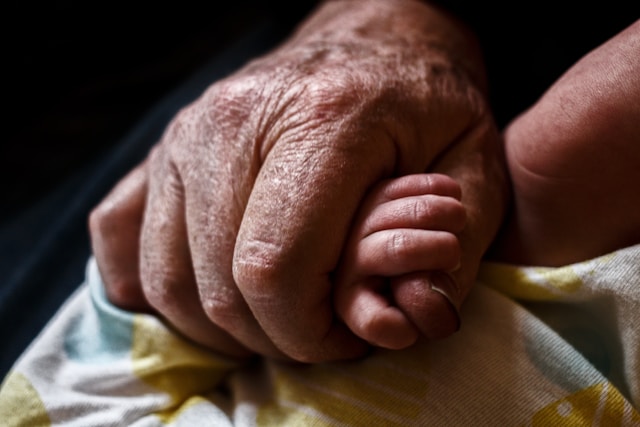
Few things in life are as touching as watching your parent or grandparent gently cradle your new baby. It’s a circle-of-life moment, packed with nostalgia, gratitude, and maybe a few happy tears. But let’s be real—letting elderly loved ones hold your newborn is also something that brings up worry, especially if they’re frail, unsteady, or coping with health challenges. Whether it’s a visit at home, the hospital, or over to an assisted living community, a little extra care goes a long way.
Here’s how to make those special snuggles both safe and heartwarming.
Start with a Quick Health Check-In
Before the big visit, check in gently about recent illnesses, exposures, or symptoms. Even a mild cold or cough can be risky for a newborn’s fragile immune system. Encourage everyone to reschedule if they’re under the weather. Don’t feel bad about holding healthy boundaries—you’re not being overly cautious, you’re just being smart.
Handwashing Is a Must (And Make It Fun!)
Always ask visitors to wash their hands with soap and water just before holding your baby. Carry hand sanitizer for extra peace of mind, but nothing beats a good wash at the sink. Make a light-hearted game of it, or let the grandparent “show” the baby how it’s done. If someone recently visited a hospital, gardened, or was around anyone sick, encourage an extra scrub.
Make a Cozy, Supportive Setup
Seniors, especially those with arthritis or balance issues, do best when seated with good back support and ample room. Set up a comfy chair with armrests, and use a pillow or rolled-up blanket to help support your loved one’s arms as they hold the baby. If visiting an assisted living community, ask staff or bring an easy chair or cushion along.
Play “Pass the Baby” Slowly
No quick handoffs or surprise moves. Sometimes it’s tempting to shift the baby to a new lap mid-conversation, but always ask your loved one if they feel steady and ready. Let them settle fully before the baby comes over.
Keep Visits Calm and Short
Babies are unpredictable, but so are older adults who may tire easily or have chronic pain. Keep holding sessions short and sweet, with breaks every so often. If your loved one seems stiff or says their arms are getting tired, gently step in and offer to help. Let them know it’s okay to say, “That’s enough for now”—no guilt necessary.
Watch for Mobility and Sensory Challenges
If your loved one uses a walker or wheelchair, make sure brakes are engaged and there’s a clear, stable surface for both adult and baby. Some folks may have vision or hearing issues—talk softly and guide their hands, helping them savor the moment with gentle description if needed.
Don’t Forget About Hygiene
Ask visitors to skip strong perfumes or lotions—babies’ skin and lungs are extra sensitive. Clean clothing for anyone holding the baby is always a good call, and make sure anyone with cold sores, recent vaccinations, or chronic infections checks with a doctor first.
Support the Bond—Even If Holding Isn’t Possible
Not everyone is able to physically hold the baby, and that’s okay. Guide little fingers to touch the baby’s feet or stroke their tiny hand, take lots of photos, and savor smiles and conversation. The connection can be just as sweet from a gentle handhold or a loving gaze.
Bottom line: it’s about blending heartwarming tradition with a pinch of extra care. When you prep a bit and keep an eye on comfort, those generations-old snuggles become joyful memories you’ll treasure forever—worry-free.
Leave a Reply